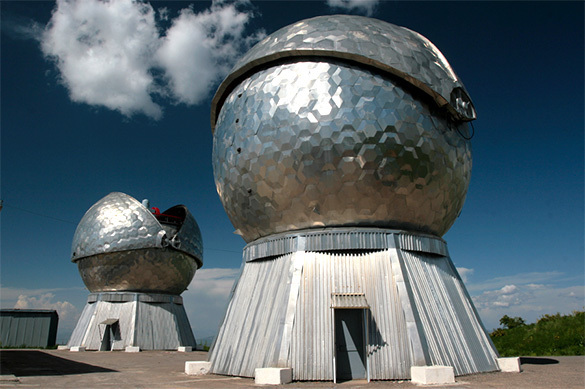Russia launches major upgrade of air defence system
Members of the Commonwealth of Independent States (CIS) will build a unified system of air and space defence. The project envisages the creation of subsystems for the destruction of space assault weapons.

This year, new missile weapons will be delivered to Kazakhstan. Kyrgyzstan, Tajikistan, Armenia and Belarus. The countries will also receive modernised communication systems and anti-aircraft missile hardware.
Russia's intention to create the new unified air defence system has raised serious concerns in the USA. According to the National Interest, NATO should beware of promising Russian air defence systems, known under the code name "Standard."
Today, forces of the Unified Air Defence System of CIS member states include 19 aviation units, 38 units of anti-aircraft missile forces, 15 units of radio technical forces, nine air defence brigades, and three military electronic warfare units.
Pravda.Ru requested an expert opinion on the subject from corresponding member of the Russian Academy of Military Sciences, Sergei Sudakov.
"Does Russia begin to modernise its missile defence system?"
"Of course. Russia is beginning to improve the system of anti-missile defense, and it is not only Russia, but other countries of the CIS that are involved in this activity. May 15, 2017 marked 25 years since the establishment of the Collective Security Treaty Organisation (CSTO), which currently incorporates Russia, Belarus, Armenia, Kazakhstan and Kyrgyzstan. We agreed that there is common collective security for these five post-Soviet countries, which, of course, should have common insurance and support systems for each other."
"What complexes are we talking about?"
"First and foremost, it goes about anti-aircraft missile systems S-300 and S-400, including the S-500, even though it has not been passed into service yet. These military complexes are best in the world. They can intercept virtually any missiles - both ballistic and non-ballistic ones. In addition, there is a number of anti-missile systems, which can also be used collectively. Russia takes on the function of the main general contractor under the collective security treaty, in which the country also acts as the largest producer and supplier of arms.
"We remember that Georgia and Ukraine also used to be members of the collective security treaty. Today, the state of affairs in the world has changed. The treaty regulates not only the exchange of technologies, the construction of certain sites where military personnel are stationed, but also the training of servicemen.
"The people who control and use modern missile complexes have an engineering education. At the same time, it is incorrect to equate these complexes to offensive weapons. They are defensive weapons only. They protect Russia like a dome, making our defence broader, to protect the soft "underbelly."
"Naturally, this raises serious concerns in the West. Our Western partners believe that Russian missiles can reach the territories of NATO countries. Yet, Russian weapons are purely defensive, and Western specialists know it very well."
Pravda.Ru
Read article on the Russian version of Pravda.Ru
Subscribe to Pravda.Ru Telegram channel, Facebook, RSS!




